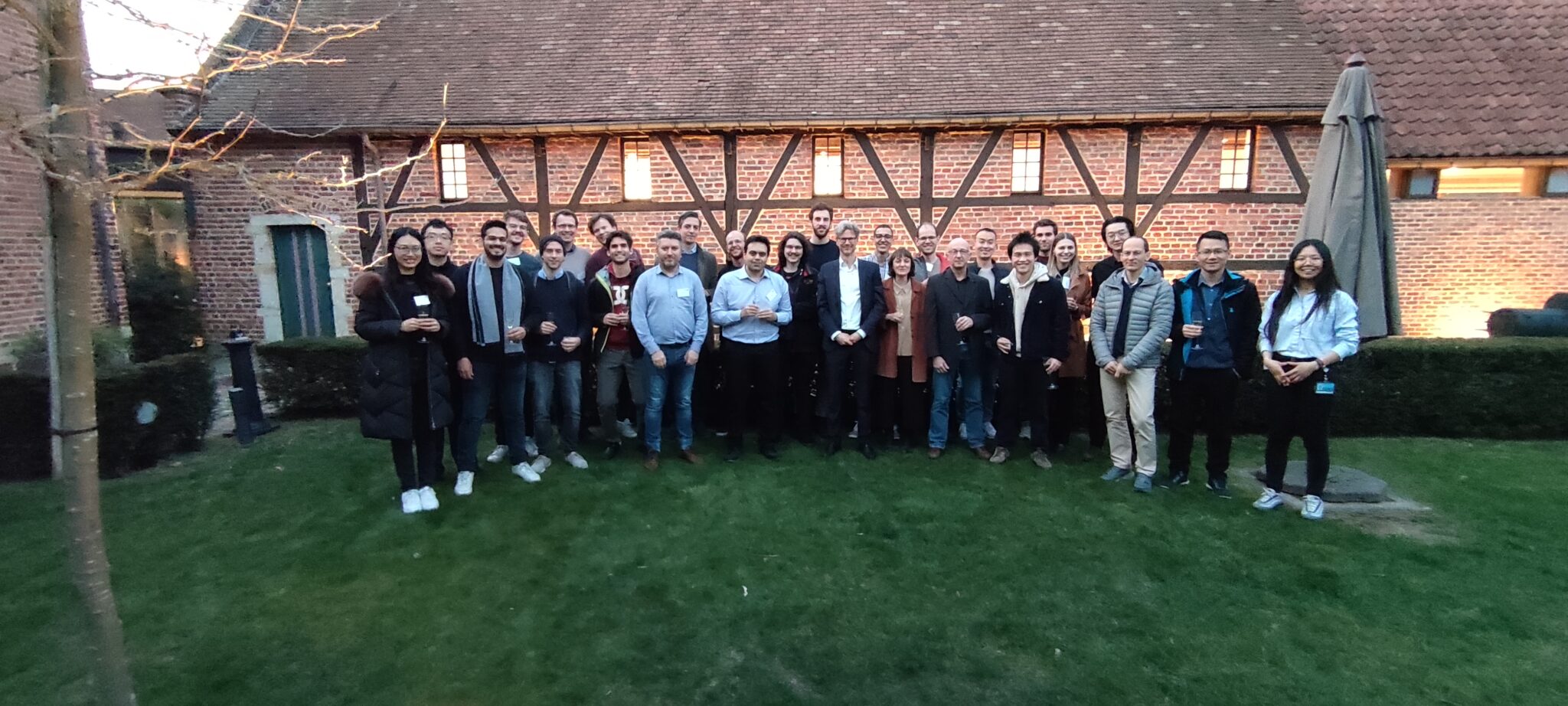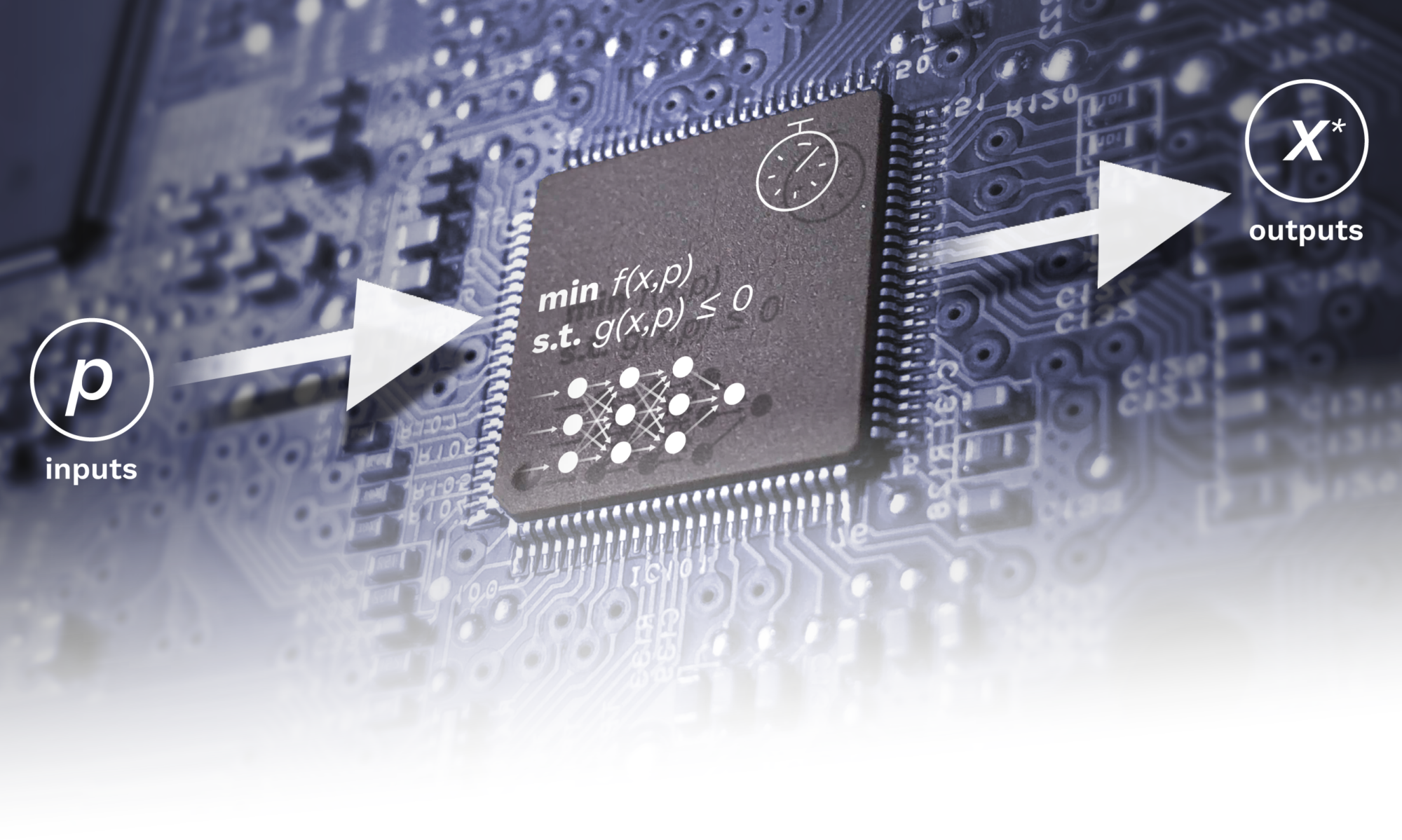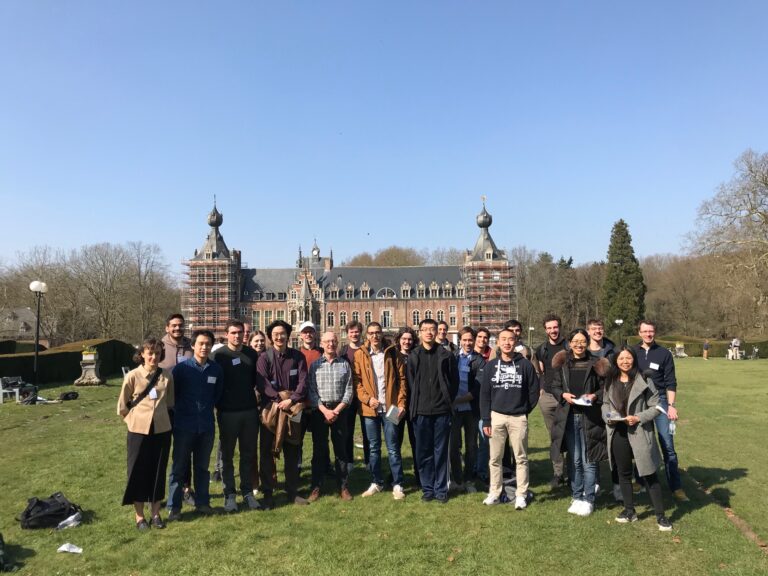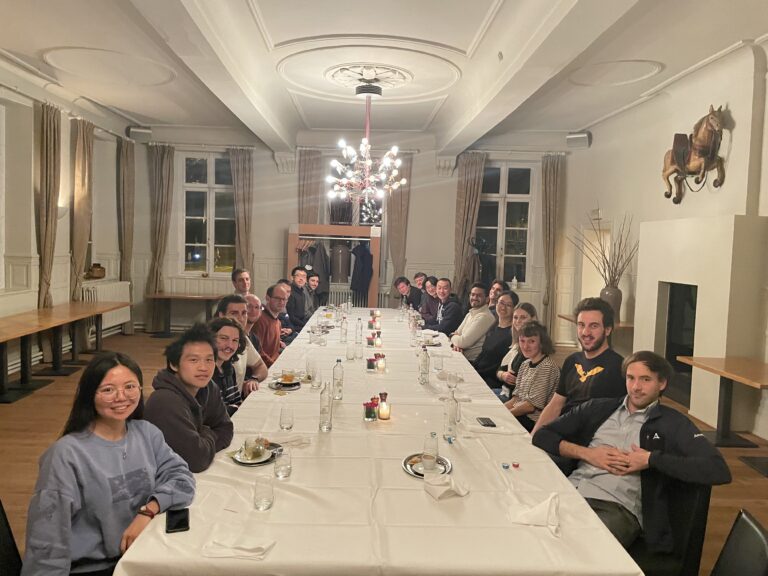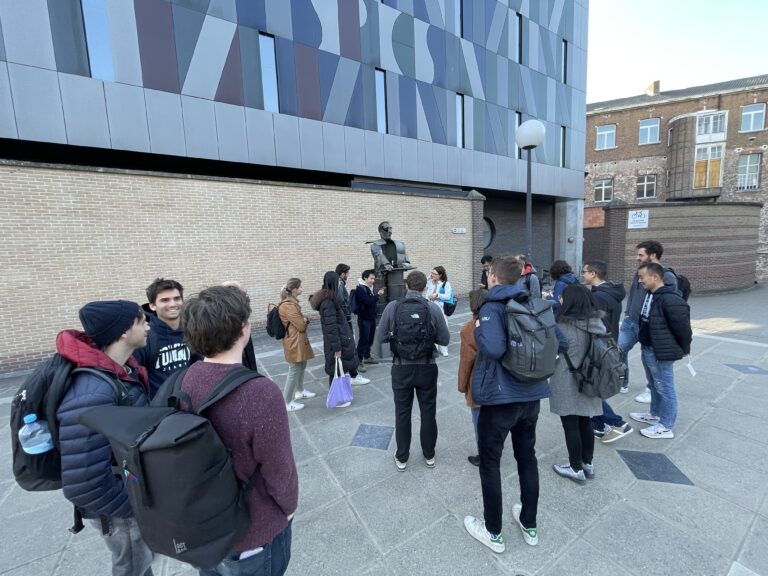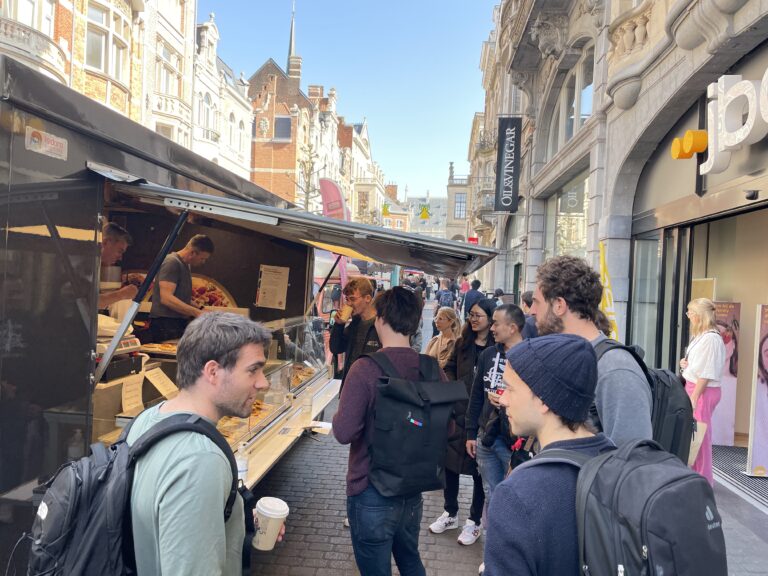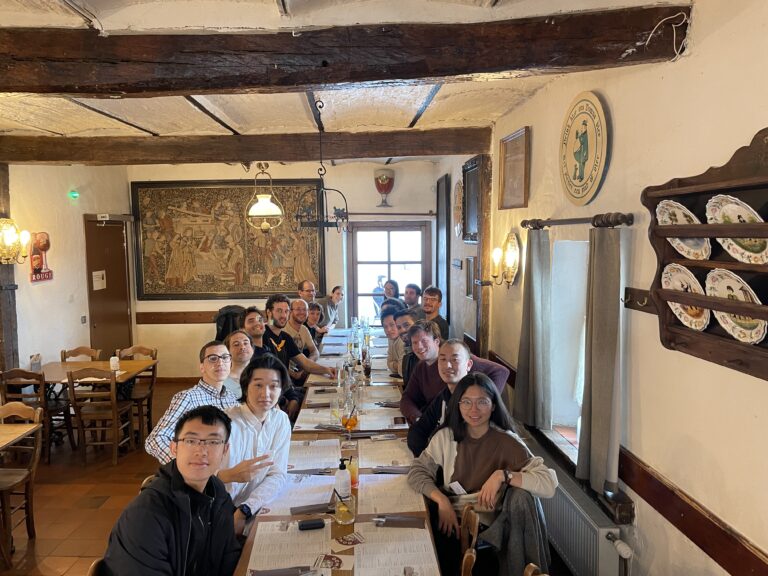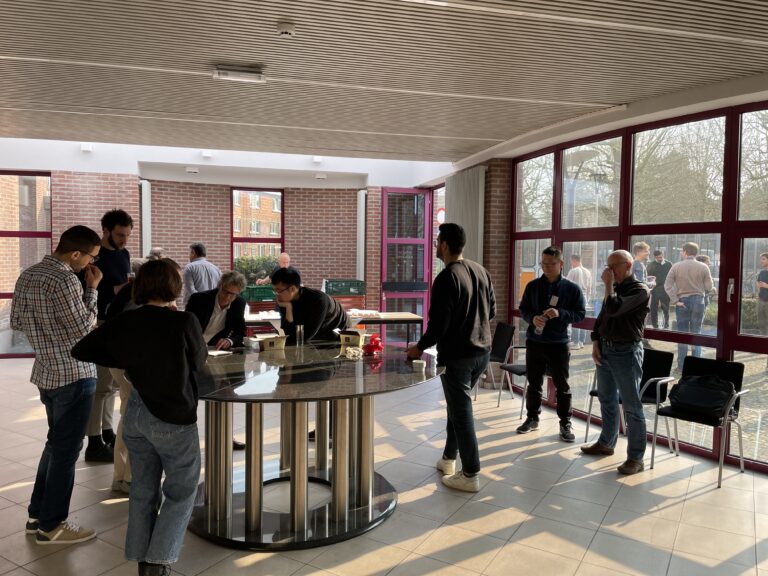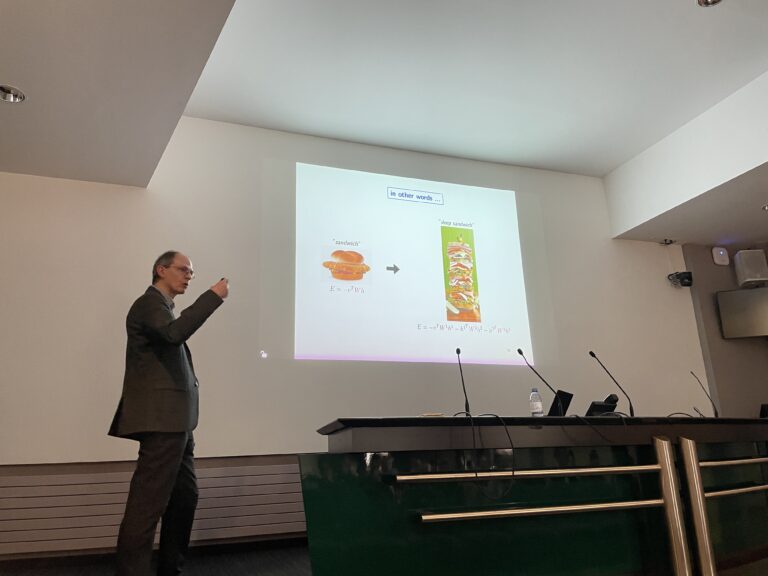
The first on-site event organized by ELO-X took place in Leuven, Belgium from March 21 to 30, 2022. The event included a four-day seasonal school on training in technical and soft skills at KU Leuven, followed by a two-day workshop on smart industrial control systems hosted by Siemens. The detailed schedule is attached to this page.
The First ELO-X Seasonal School @ KU Leuven
Organizers: Prof. Jan Swevers, Prof. Panos Patrinos
March 21, 2022
Monday
Arrival
March 22, 2022
Tuesday
@ Thermotechnisch Instituut
08:15 – 09:00
09:00 – 10:30
10:30 – 11:00
11:00 – 13:00
13:00 – 14:00
14:00 – 15:00
15:00 – 15:30
15:30 – 16:30
Registration @ Machinezaal
Presentation Skills for Researchers (Part I)
Coffee Break
Presentation Skills for Researchers (Part II)
Sandwich Lunch
Model Predictive Control: from Basics to Learning Based Design (Part I) [Video]
Coffee Break
Model Predictive Control: from Basics to Learning Based Design (Part II) [Video]
Abstract for Presentation skills for researchers
The first part is an interactive seminar that focuses on some key issues that many presenters struggle with, ranging from presentation structure to maintaining audience attention and preparing for the Q&A session. We will also provide language advice and practice useful English phrases (e.g. to structure your talk).
In the second part, we will focus on the participants’ own presentations. Participants take turns presenting and receive individual feedback from both the tutor and the peer group. We will also use these presentations as a starting point to discuss some other aspects of presentations skills, such as body language and visuals. By the end of the session, participants are aware of their own strengths and weaknesses as a presenter and have been given new tools to enhance their academic presentation skills in English.
Abstract for Model predictive control : from basics to learning based design
March 23, 2022
Wednesday
@ Thermotechnisch Instituut
09:00 – 10:30
10:30 – 11:00
11:00 – 13:00
13:00 – 14:00
14:00 – 15:30
15:30 – 16:00
16:00 – 18:00
A Quick Guide towards Connecting Communication: Giving & Receiving Feedback and Listening to Intention & Message (Part I)
Coffee Break
A Quick Guide towards Connecting Communication: Giving & Receiving Feedback and Listening to Intention & Message (Part II)
Lunch
Presentations by the ESRs
Coffee Break
Presentations by the ESRs
Abstract for A quick guide towards connecting communication : giving & receiving feedback and listening to intention & message
How can you use the diversity in communication styles and preferences in your team to your benefit to ensure this complementarity is both productive and pleasant? In this workshop we’ll focus on 2 main areas as a ‘quick guide’ to communication:
1. Focus on you as a person: how do you communicate? What are my preferences? What works for me? What are my interaction ‘allergies’? How do others perceive me and is that coherent with how I see me? What are my strengths and pitfalls or blind spots?
2. Focus on interaction and collaboration: How do humans respond to behavior? What interactions go naturally smooth and when does it take more work? Why is it worth to put that work in (or not, your choice)? How to give and receive feedback?
The workshop is interactive and switches between theory and practice.
March 24, 2022
Thursday
@ Thermotechnisch Instituut
09:00 – 10:30
10:30 – 11:00
11:00 – 13:00
13:00 – 14:00
14:00 – 15:30
15:30 – 16:00
16:00 – 18:00
Coffee Break
Research Management/Managing Your PhD (Part II)
Lunch
Research Management/Managing Your PhD (Part III)
Coffee Break
Research Management/Managing Your PhD (Part IV)
Abstract for Research management/Managing your PhD
March 25, 2022
Friday
@ Huis Bethlehem, Aula Wolfspoort
09:00 – 10:45
10:45 – 11:15
11:15 – 13:00
13:00 – 14:00
14:00 – 15:45
15:45 – 16:15
16:15 – 18:00
19:00 – 22:00
Embedded Learning and Optimization Methods for Nonlinear Systems [Video]
Coffee Break
Tutorial on the Behavioral Approach to Data-driven System Theory and Control
Lunch
Learning from Data: Model Representation and Duality [Video]
Coffee Break
Data-driven Decision-making in Dynamic Environments [Video]
Social Dinner @ Faculty club
Abstract for Embedded Learning and Optimization Methods for Nonlinear Systems
Abstract for Tutorial on the behavioral approach to data-driven system theory and control
Abstract for Learning from data : model representations and duality
Abstract for Data-driven Decision-Making in Dynamic Environments
March 26, 2022
Saturday
The First ELO-X Workshop @ Siemens
Organizer: Dr. Son Tong
March 28, 2022
Monday
@ Siemens Digital Industries Software
09:00 – 10:15
10:15 – 10:30
10:30 – 13:00
13:00 – 14:00
14:00 – 15:45
15:45 – 16:00
16:00 – 17:00
17:00 – 18:00
Deep Learning in Practice
Coffee Break
Deep Learning in Practice (cont.)
Lunch
Scientific Machine Learning @ Simulation and Test Systems – Connecting the Real and the Digital World
Coffee Break
Reinforcement Learning in the Context of Generative Engineering: Controller Generation Supporting Automated Architecture Tradeoff
Numerical Optimization and Machine Learning for Edge Case Detection in Autonomous Vehicles
Abstract for Deep learning in practice
Abstract for Scientific Machine Learning @ Simulation and Test Systems - Connecting the real and the digital world
Abstract for Reinforcement learning in the context of generative engineering : controller generation supporting automated architecture tradeoff
Abstract for Numerical Optimization and Machine Learning for edge case detection in autonomous vehicles
March 29, 2022
Tuesday
@ Siemens Digital Industries Software
09:00 – 10:00
10:00 – 11:30
11:30 – 11:45
11:45 – 13:00
13:00 – 14:00
14:00 – 18:00
19:00 – 22:00
Supervisory Board Meeting
Distributed Learning Control with Communication Efficiency
Coffee Break
Machine Learning for Efficient Vehicle R&D Testing
Lunch
Mid-term Check
Farewell Dinner @ Mykene
Abstract for Distributed learning control with communication efficiency
Abstract for Machine Learning for efficient vehicle R&D testing
Vehicles are increasingly getting more complex to design, because of the large number of design variants, the need for modular designs and the use of highly integrated systems due to e.g. the electrification trend. While Computer-Aided Engineering (CAE) tools are widely adopted, physical measurements remain an integral part of the methodology throughout all stages of the vehicle design process, for design verification and validation purposes but also for model updating in view of future design cycles. The industry is seeking solutions to increase the overall efficiency of physical testing, both in terms of equipment cost and in terms of time. Machine Learning (ML) methodologies are therefore envisioned to reduce the amount of time-intensive and repetitive manual labor and to achieve “first time right” testing (e.g. avoiding measurement mistakes). Also in the later stages of the vehicle lifecycle measurement data is collected, e.g. for the purpose of “end-of-line” production quality inspection. In this case ML can enable an automatic interpretation of the measured data in a quality inspection system.
This presentation will discuss ongoing research activities at Siemens on the application of ML to vehicle testing through different use cases, e.g. data-driven virtual sensors for vehicle dynamics testing, sensor anomaly detection in large channel count measurement campaigns and deep learning based booming noise detection in acoustic end-of-line testing.
March 30, 2022
Wednesday
@ Siemens Digital Industries Software
09:00 – 12:00
12:00 – 13:00
13:00 – 14:00
Mid-term Check
Lunch
Siemen’s Workshop Tour
Mid-term check details
| Tuesday March 29, 2022 | |
|---|---|
| 14:00 – 15:45 | PO & PC presentations |
| 15:45 – 16:15 | Coffee break |
| 16:15 – 17:50 | Fellows’ individual presentations |
| Wednesday March 30, 2022 | |
| 09:00 – 10:15 | Fellows’ individual presentations |
| 10:15 – 10:45 | Coffee break |
| 10:45 – 11:30 | Restricted session of PO with fellows |
| 11:30 – 12:00 | Any other business/individual meeting |
Venue Information
Routes to the seasonal school (more details later…)
Route to Thermotechnisch Instituut
From Hotel The Lodge Heverlee
It can be reached by walking, which takes only 2 minutes. Then follow the signs or staff guidance to rooms.
From Novotel Leuven Centrum
First, reach the Leuven Station by an 8-min walk. Then, take Bus 616 (direction Heverlee) from the Leuven Station bus stop number 6 (Leuven Station Perron 6), go down at the stop “Heverlee Kasteel Arenberg”, and walk for 1 minute to reach the Thermotechnisch Instituut. You can also take Bus 2 (direction Heverlee) from the Leuven Station bus stop number 6 (Leuven Station Perron 6), go down at the stop “Heverlee Kantineplein”, and walk for 3 minutes to reach the Thermotechnisch Instituut. Then follow the signs or staff guidance to rooms.
If you plan to reach by car, you can park your car at Parking De Molen
Route to Huis Bethlehem, Aula Wolfspoort
From Hotel The Lodge Heverlee
You can take Bus 2 (direction Kessel-Lo) from the stop “Heverlee Kantineplein” (In front of the hotel) to the stop “Leuven H.Hartkliniek”, and walk for 3 minutes to reach the HUIS BETHLEHEM (BETH), Aula Wolfspoort. Then follow the signs or staff guidance to rooms.
From Novotel Leuven Centrum
There are several opinions by bus, but taking Bus 2 (direction Heverlee) from the Leuven Station bus stop number 6 (Leuven Station Perron 6) is the fastest one. Go down at the stop “Leuven H.Hartkliniek” and walk for 3 minutes to reach the HUIS BETHLEHEM (BETH), Aula Wolfspoort. Then follow the signs or staff guidance to rooms.
If you plan to reach by car, you can park your car at Parking Huis Bethlehem
Routes to the workshop (more details later…)
By car
13-15 minutes from the Leuven station. You can park your car in the visitors parking facing Siemens.
By bus
Take the Bus 630 (direction Hassrode) or Bus 4 (direction Hassrode) from the Leuven Station bus stop number 5 (Leuven Station Perron 5). Go down at the stop “Haasrode Siemens”.
The bus company running in Leuven is called De Lijn. You can buy the tickets from here (One time m-ticket for 2euros, 10 m-cards for 16 euros).
Photo Gallery
